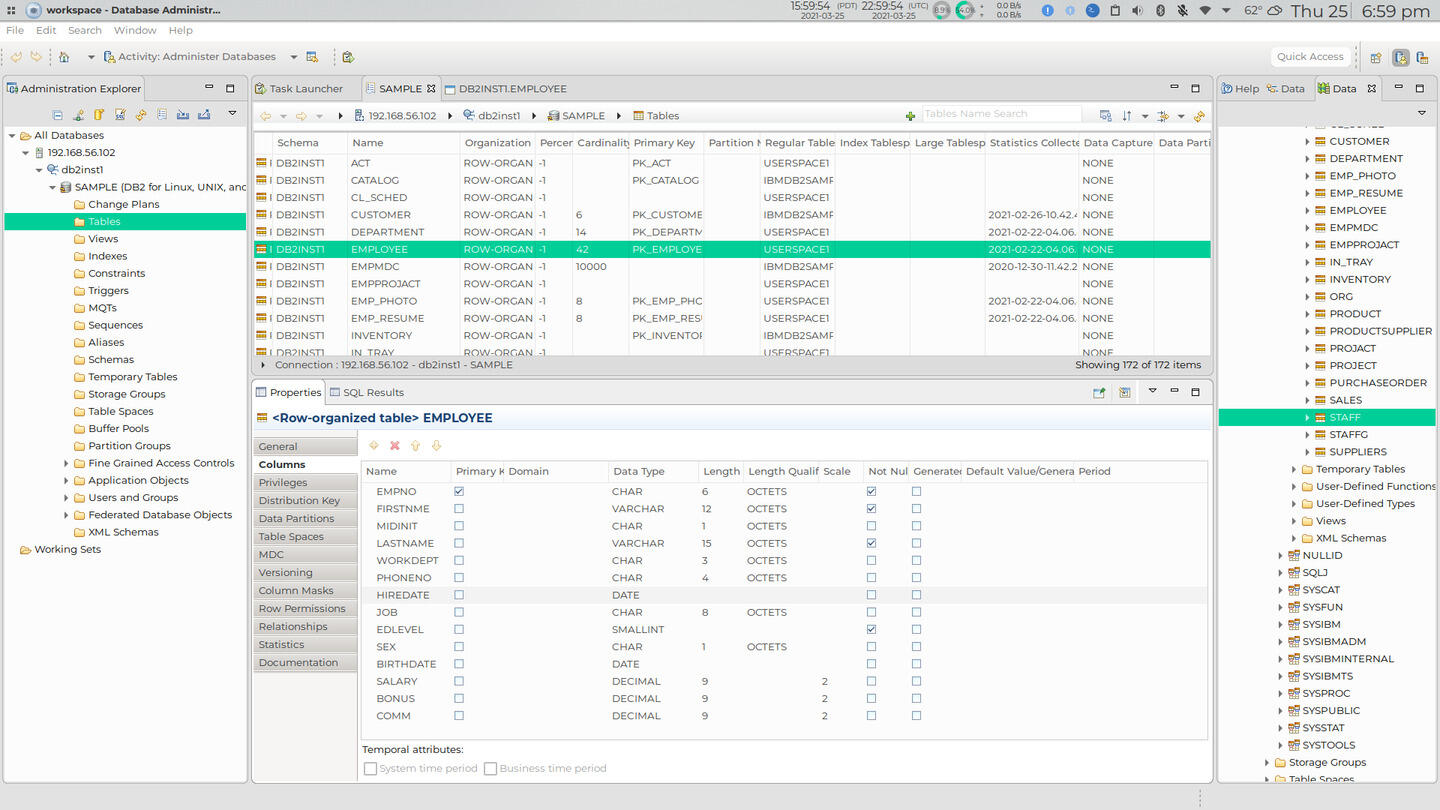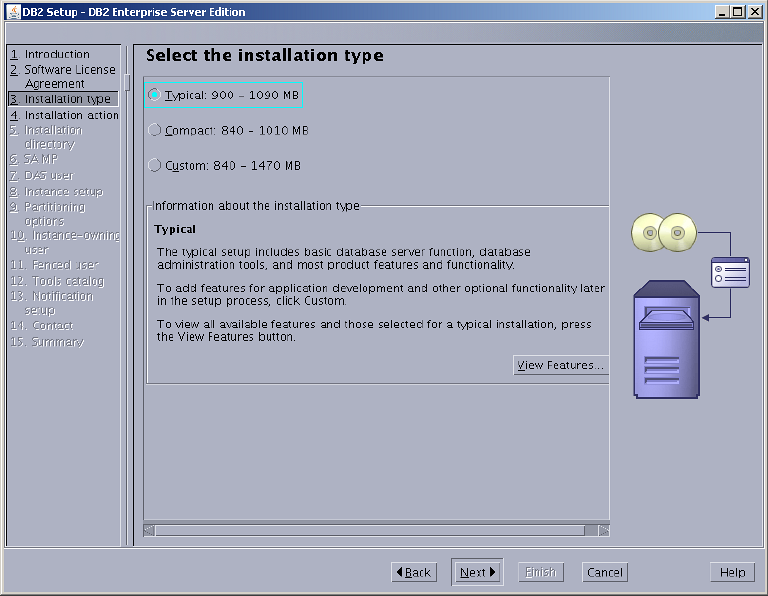

DB2 ADMINISTRATION TOOL V11 DATA SETS MANUAL
Beyond manual troubleshooting, it’s important to incorporate a high-quality tool to manage optimization and performance, so you don’t leave any issues unresolved. For example, has the server actually booted up? Has the Db2 instance started? Is the connection available? If a site failover has occurred, has disaster recovery kicked in?Īll this needs to be monitored to maintain a healthy and well-functioning database system. Numerous factors could be behind database issues.

You should also monitor metrics in your infrastructure, including time spent metrics (time spent waiting, I/O time, time spent processing), section explains, and section actuals. You need to be monitoring three key areas: system performance, activities, and data objects. By checking on infrastructure and clearly baselining your infrastructure’s performance, you can better understand the typical workloads your data server processes. Next, make sure you regularly monitor both system and query performance.
DB2 ADMINISTRATION TOOL V11 DATA SETS FREE
You need to control where you store your diagnostic data, and you need to ensure there’s always enough free space to store it. The most important thing is to think of it as controlling, not suppressing, the process of diagnostic data collection. Your server should be configured to leave space for diagnostic data collection. You need to ensure your data server is configured correctly ahead of time, so you don’t run into problems when you try to carry out the troubleshooting process. Oracle and Db2 Troubleshootingįollow these basic best practices when troubleshooting Db2 or any other RDBMS: Be Prepared It’s best to familiarize yourself with the top players, check out free trials or demos, and look carefully at the specific features and how they fit with your needs.

In many cases, the right RDBMS for you will depend on the specifics of your organization. You may also be considering other options, such as Db2 vs.

While some feel Db2 is lacking or has become less modern than Oracle as these two products have developed, shortcomings in Db2 can be easily addressed with third-party applications. Both are very stable databases, with large amounts of documentation and good support. Oracle is IBM provides Db2 when you purchase any of its iSeries hardware or operating systems, while Oracle is only sold independently-in other words, you have to pay for it separately.ĭb2 is well known for reliability and scalability, while Oracle Database is more known for its wide range of applications, tools, skills, and partners available. In addition, Oracle supports more programming languages.īoth RDBMSs support C, C#, C++, Cobol, Delphi, Fortran, Java, Perl, PHP, Python, Ruby, and Visual Basic, but Oracle Database also supports Clojure, Eiffel, Erlang, Groovy, Haskell, JavaScript, Lisp, Objective C, OCaml, R, Scala, and Tcl.Īnother key difference when it comes to Db2 vs. Unlike Db2, Oracle supports servers running OS X, though this isn’t very common in most enterprise settings. Both RDBMSs are implemented in C and C++ and support similar server operating systems (AIX, HP-UX, Linux, Solaris, Windows, z/OS). Both were released around the same time (in the early 1980s), and they have some shared features. It goes on to outline the foundational best practices for troubleshooting your RDBMS and the best tools for managing Oracle and Db2 performance-including my top pick, SolarWinds ® Database Performance Analyzer (DPA). This guide starts out by comparing the features of Db2 vs. The RDBMS manages these kinds of databases. By making it easy to see how data points relate to one another, they allow devices to efficiently search for and find relevant information for running applications and services. Relational databases organize information in a “relational” format, in which data is represented in tables with columns and rows. As relational database management systems ( RDBMS), both are used for managing and indexing the information on your systems. Database products are available from all the big manufacturers, but two of the most popular are IBM Db2 Database and Oracle Database.


 0 kommentar(er)
0 kommentar(er)
